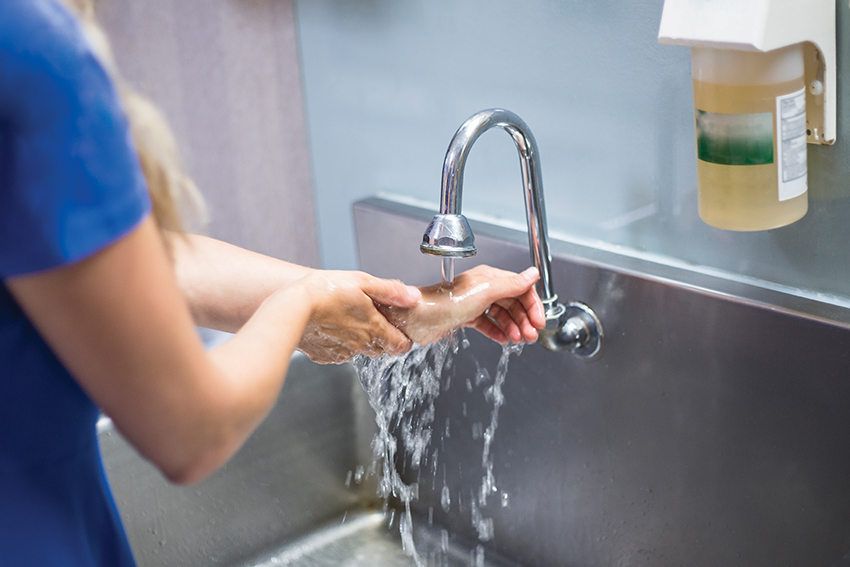
The promotion and education of hand hygiene is critical to preventing the spread of infectious microorganisms including coronavirus, according to Darran Leyden, managing director of industrial cleaning products manufacturer, Whiteley Corporation.
There are now more than 17,000 confirmed cases of coronavirus worldwide, with the majority in China, according to the World Health Organization (WHO).
In Australia, there have been 12 confirmed cases, including four in NSW, three in Victoria and two in Queensland. On Saturday South Australia recorded its first confirmed case after a Chinese couple tested positive to the disease.
Last week WHO declared the new strain of coronavirus a public health emergency of international concern. The decision was announced after a Geneva meeting of the international organisation’s emergency committee.
“Unfortunately, with the Coronavirus(2019-nCoV) now on our own doorstep, it’s only a matter of time before we have more confirmed cases in Australia. Every institution should be re-evaluating their infection prevention procedures,” Leyden told INCLEAN.
“Cleaning companies and facilities should be implementing good hygiene practices. Whether it’s as simple as making sure products such as tissues are put in the bin straight away after use, or ensuring if [staff] are using neutral detergents they make sure every surface is cleaned thoroughly and regularly.”
According to Leyden the disinfection of high touch areas as well as regular hand washing is critical, adding demand for surface disinfection and hand hygiene products has “skyrocketed” for the medical and industrial cleaning products manufacturer.

“When people touch surfaces, they transmit pathogens or infectious material from the surface onto others and potentially onto themselves, so regular hand hygiene is important.
“Wash hands if they are visibly soiled using soap and water, then perform hand hygiene using an alcohol-based hand rub on a regular basis. This is vital if you are in physical contact with other people and surfaces, and is critical in keeping both staff and workplaces safe.”
Bridget Gardner, director of HPC Solutions, said it’s critical cleaning companies have pandemic cleaning policies, especially if they manage public facilities and educational facilities, such as airports and universities with high international student populations.
“It’s not just about cleaning protocols, it’s also about protecting cleaners who are in the frontline. Face masks, hand hygiene education and high touch point cleaning protocols should be given to all cleaners.”
Kim Puxty, national president of the Building Service Contractors Association of Australia (BSCAA), said all cleaning companies should have in place an infectious disease control policy and update staff on infection control practices.
“The BSCAA encourages all cleaning companies to have in place an Infectious Disease Control Policy and to train/retrain staff on infection control practices, such as;
- Following written cleaning methods
- Consider increasing the frequency and/or increasing cleaning of high touch points (i.e. door handles/plates, shared workstations)
- Wearing of personal protective equipment [PPE] when cleaning surfaces and facilities and training in use of chemicals
- Cleaning cloths should be changed after each use and cleaned and dried before being used again. Cloths should be changed immediately following the cleaning of blood or body fluid/substance spills. Consider using single-use cleaning items, where possible, for a period of time
- Mop heads should be changed and cleaned with disinfectant. Mop buckets rinsed out with disinfectant
- Routine environmental cleaning should be sufficient to ensure that infectious diseases are less likely to be transmitted i.e. neutral detergent followed by a hospital grade disinfectant. Detergents should not be mixed with other chemicals.”

Comment below to have your say on this story.
If you have a news story or tip-off, get in touch at info@3.106.117.80.
Sign up to INCLEAN’s newsletter.
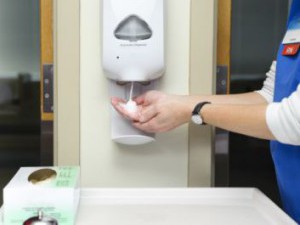
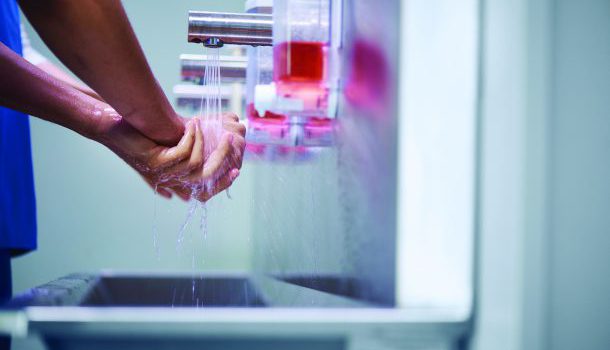
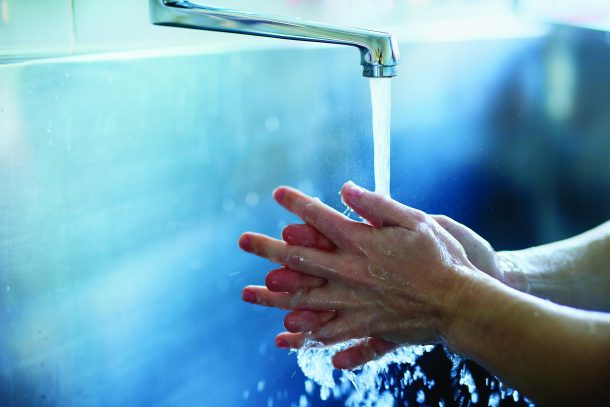

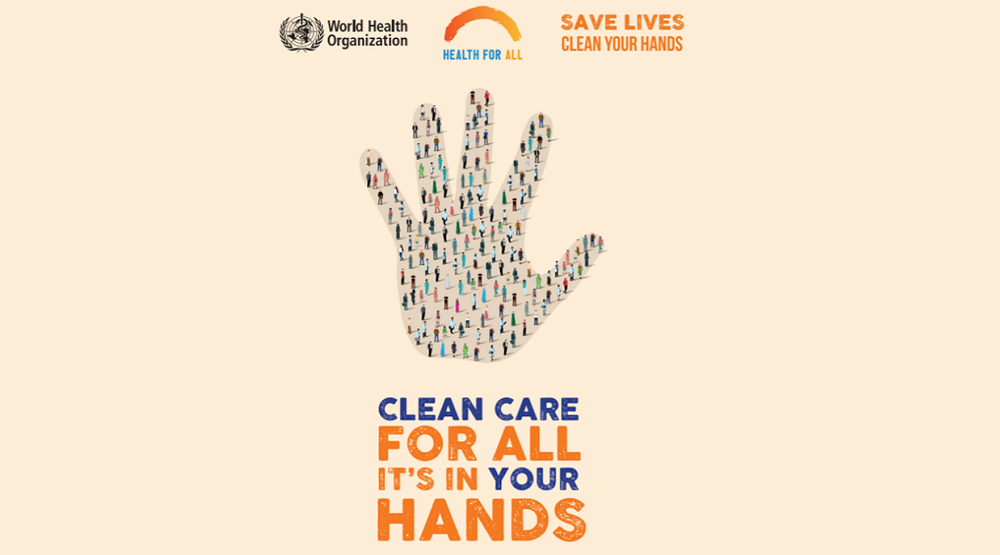
Having just experienced one of the worst influenza seasons since the 1918 Spanish flu global epidemic which saw over 30 million people perish, Australia like the rest of the world is now busily preparing via our healthcare service providers to meet the challenge of ensuring our infection prevention & control policy and procedures are in place to best minimise the Corona-virus outbreak potential. Likewise now is the time for all of us to seriously think about how best we can protect ourselves, our children, our families and co – workers and their families against the risk of catching the Corona virus!
The Corona virus is part of a large group of highly infectious viruses, this group also includes the common cold, influenza A & B, MRSA & MERS among many other upper respiratory illnesses. It’s also acknowledged by all health authorities globally like all other highly infectious upper respiratory illnesses, in fact over 80% of all infectious illnesses and diseases are transmitted by HANDS! Therefore it make good sense to protect your hands from becoming potentially infected from virtually any & all items and surfaces your hands come in contact with. Whilst we all know regular effective hand washing is VERY important it’s never as antimicrobially effective as applying a hand sanitiser.
The Choice of Hand Sanitiser is ultimately yours, However do you really know their differences to choose wisely to maximise your protection and those you value most?
The reality between the two present hand sanitising technologies can be best summed up in four (4) easy to understand points.
1. The technologies & their antimicrobial action
a. Alcoholic based products kill via “drying”
b. Non-Alcohol based products kill via “disruption”
2. Their antimicrobial efficiencies
Both alcohol & non-alcohol state proven 99.99% effectiveness
3. Their antimicrobial protection time frames via each application
a. Alcohol product is “maximum” of 30 seconds based on rate of evaporation before
re application to maintain antimicrobial protection is required
b. Non-Alcohol product based on “Hitoz 12 hr” product is 12 hours before re
application is required
4. Their price values – The all-important “bang for your buck”
a. Both products are similarly priced, although it should be noted that the Hitoz 12
hr product is not sold through retail supermarkets including pharmacies
From the above technologies comparisons the clear disadvantage using an alcohol based hand sanitiser is the constant requirement to reapply to maintain effective antimicrobial protection. This requires not only considerably more product usage but cost, not to mention the difficulty of ensuring users especially children apply the alcohol based hand sanitiser at the correct interval times to maintain their protection compared to alcohol free product.
Our solution is both easy & simple for ALL family members to apply before leaving home each day, in fact our slogan sums it up nicely “Healthy Hands – Healthier You & It Always Begins at Home.” We simply suggest applying our hand sanitiser as part of your daily routine to prepare for your day, including showering, dressing, having breakfast, etc. In fact many of our customers tell us applying our hand sanitiser quickly becomes an automatic function. We recommend talking to your family & friends about their infection prevention control needs as it could be invaluable in preventing any number of serious infectious illnesses and their associated costs.